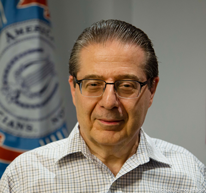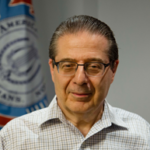The last six months have been a very busy time for me. In addition to the work of running a mid-sized local and my duties as AFM International Vice President, the AFM initiated its new Officer Training program that I worked with others to create. Training has taken place in King of Prussia, Pennsylvania; Madison, Wisconsin; Orlando, Florida; Chicago, Illinois; and Hamilton, Ontario, Canada. In addition to those training sessions, I also attended the Regional Orchestra Players Association (ROPA) and International Conference of Symphony and Opera Musicians (ICSOM) conferences. Through all of this work, there developed a theme that I felt was worth sharing. This has been an important time for revitalization and regeneration at multiple levels of the AFM. Let me explain.
Starting with the Officer Training program, it has been years since the AFM had such a program in place. The work that local officers do is complicated, time intensive, and never ending. Combined with the fact that there are not many “kudos” and pay is not what it should be, you have a recipe for burnout. That said, those who take on these local leadership positions, do so for the good of all. It’s truly a calling for the best of those officers and their commitment cannot be underappreciated.
As we’ve gone through each of our training sessions, the feedback has been almost universally positive. It’s not just what officers learn from staff and trainers, but what they learn from each other, as well. As they grow their relationships, they have new allies to contact when there are problems to discuss or for cross collaboration between locals. For those officers who have been in place for a while, there is a sense of regeneration and rededication to their duties. For those who are new to their positions, they now know where to turn for answers and support. It’s exciting to feel the energy and see the interaction and relationships that build during these two or three-day sessions.
Moving to ROPA and ICSOM, both of those conferences have new leadership at the top and this was their first round of conferences. You could sense a slightly different dynamic and energy in each of those conferences. It’s not that the previous leadership wasn’t great, it’s just that, as someone new steps into that role, they bring fresh ideas and enthusiasm that refocuses the direction and creates a revitalized organization, ready and energized to face challenges head on.
Lastly, Local 99 (Portland, OR), my local, has gone through a transition. Dennis Lynch, secretary-treasurer of Local 99 and a pillar of the AFM, has retired. He joined the AFM in the mid ’70s, and first became the secretary-treasurer of Local 689 (Eugene, OR) in November 1978. Then, the AFM hired him as the AFM Western Region International Representative (according to Dennis, on April Fool’s Day 1984). He served in that position for 20 years, until 2004. In 2008 he became secretary-treasurer of Local 99. We thank Dennis for the incredible contributions and his years of service to the AFM and wish him the best in this new phase of his life.
Filling those large shoes at Local 99 is newly elected Secretary-Treasurer Mont Chris Hubbard. To continue the theme, you can feel the resurgence of energy at the local. He is doing all the things that a new leader must do. While he is learning the ropes, understanding the work and the depth of what must get done, he is also challenging the status quo. He is making us look at the way we work with a new set of eyes and experiences. We will all learn from the transition taking place. I believe we will end up with a stronger, revitalized, and more efficient and effective local.
What this summer of change brought into clear relief for me is the importance and value of a fresh set of eyes, or a new backdrop for the work we do. I’m not just talking about local officers and the AFM. I’m talking about all of us. Maybe it’s time to take a hard look at your career and where you’re at. Are you in a rut? Does it seem like new ideas for moving forward have stalled? Do you have writer’s block? We all need to change our perspective, whether it be through classes or training, a change in routines, time away from work (vacation), or even looking at some of our multiple work commitments and deciding whether they are moving us forward or holding us back. The process of “challenging” our status quo can lead to renewed energy, commitment, and a revitalized focus on our work.
Maybe it’s easiest to think of this as a reboot. It just might be time to take a good look at ourselves, our bands, the work we do, and make this our season of change.




